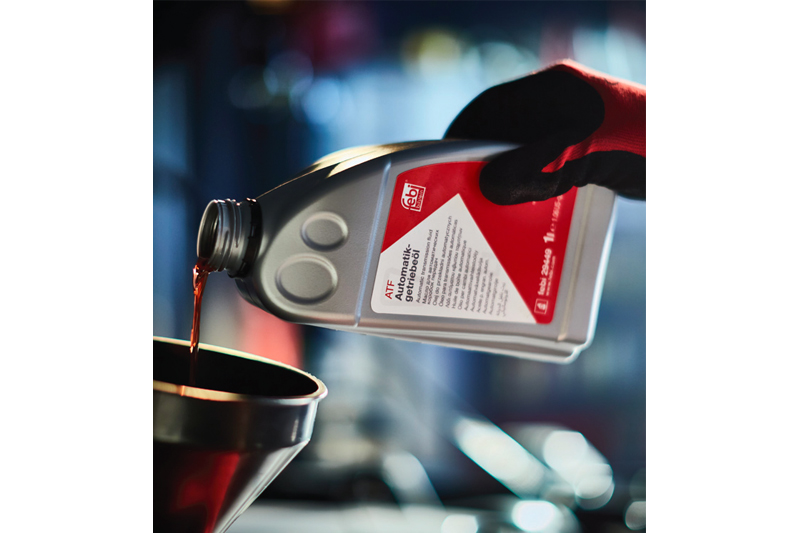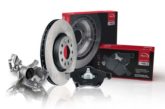
febi explores the important role transmission oil plays in manual and automatic vehicles.
The engine creates the energy of the vehicle, which is used by the transmission to power the wheels. Every transmission type relies on the quality of the oil designed to fulfil the most extreme requirements, allowing the driver to be confident that all the power of the engine is transferred to the road.
With the continuous evolution of automotive technology, transmissions have become more complex and, in turn, require more technologically-advanced fluids to ensure they operate with efficiency and reliability.
The transmission is one of the vehicle’s most vital components, with numerous finely-engineered precision parts making it one of the most complex and expensive units to repair or replace. Using the correct oil and replacing it at the correct time is key to preventing transmission problems such as ‘shudder’, gear stiffness and axle whining. Damaging components before these issues occur can result in possible premature and expensive transmission failure.
Manual transmissions
Manual transmission oil plays an extremely important role in the correct operation of the transmission as it will keep it lubricated and protected from heat and wear. The additives are combined with the base oil during the production process to increase the following main functions:
Thermal Stability: Operating at high temperatures, gear oil must remain thermally stable to reduce the build-up of sludge and maintain efficiency. A gear oil that cannot withstand the temperature of the application it is used in will have decreased power and wear and tear will occur much sooner.
Extreme Pressure (EP) additives: These help protect the gearbox in conditions where extreme pressure and shock-loading will occur.
Contamination and Corrosion: This is to combat any contaminants that may enter the system. Gear oil will need to contain anticorrosive, anti-oxidation or anti-foaming agents. These additives perform best in environments with high speeds and low loads.
Automatic transmissions
The various automatic transmission types are designed to control and optimise gear-shift quality and ‘feel’, with transmission oil playing a major part in this.
This allows the gear shift to operate completely smoothly and efficiently – made possible by using sophisticated ‘additive packs’ within the base oil.
Direct-shift, continuously variable, automated manual and traditional torque-converter automatic transmissions are engineered to give seamless gear changes to make driving easier. By not having to make the decision of when to change gear, the driver can concentrate on traffic and road conditions. These sophisticated transmissions require quality oil to keep the operating systems running smoothly and its computer-controlled control unit operating within very fine engineering tolerances.
Choosing the correct oil
Transmission oil is not just a lubricant – it is a vital component which optimises gear-shift quality and ‘feel’, providing excellent friction behaviour thanks to its thermal stability. It also gives ageing resistance – ensuring wear protection in all operating conditions and guaranteeing the best possible corrosion defence.
Selecting the correct replacement oil specification is vitally important to safeguarding transmission operation as designed, and to maintain its performance throughout the lifetime of the vehicle. All febi transmission oils have the oil viscosity rating and vehicle manufacturer specifications, plus recommended applications, written on the label to identify the suitability of each oil.
To ensure a transmission’s long life and smooth operation, febi recommends that regular transmission oil servicing is carried out to the vehicle manufacturer’s recommended intervals, subject to the operating conditions of the vehicle.









